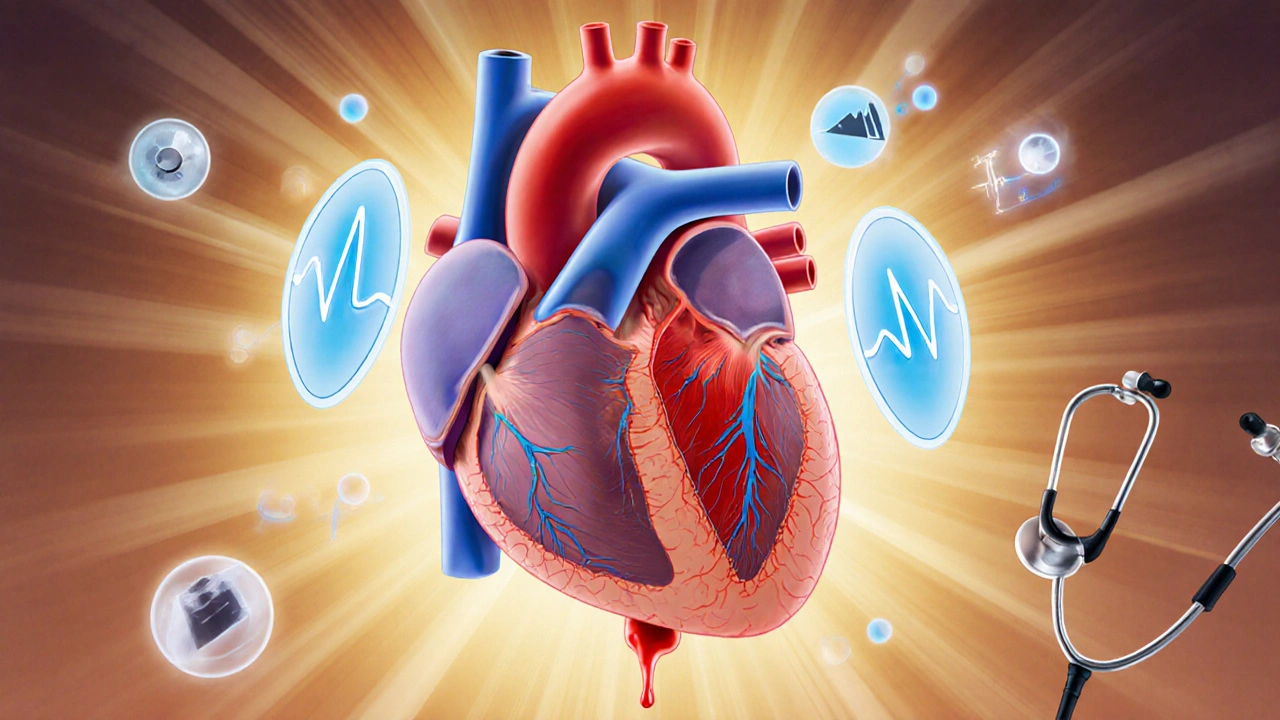Heart failure: what to watch for and what actually helps
Shortness of breath, swelling in your ankles, or being wiped out after normal activities — these aren’t just “getting older” problems. They can be signs of heart failure. If you or someone you care for feels this way, knowing the basics helps you act fast and stay in control.
Heart failure means the heart can’t pump well enough for your body’s needs. That can happen suddenly or slowly over years. It doesn’t mean your heart stopped. It means it’s weaker or stiffer than it should be, and the body starts showing clear signals.
Common signs and quick checks
Watch for these day-to-day red flags: new or worsening shortness of breath (especially when lying flat), swelling in legs or belly, unexplained weight gain (a few pounds in days), persistent cough, fatigue, and low exercise tolerance. If you notice fast weight gain plus more breathlessness, call your doctor — that often means fluid is building up.
Simple checks you can do at home: weigh yourself daily, note how many pillows you need to sleep comfortably, and track how far you can walk without stopping. These small habits give your medical team useful clues.
How doctors diagnose and treat it
Diagnosis usually starts with a visit: history, physical exam, and basic tests like an ECG, blood test for BNP (a marker of heart strain), and an echocardiogram (an ultrasound of your heart). These tell your doctor how well the heart pumps and what might be causing the problem.
Treatment mixes medicine, lifestyle changes, and sometimes devices or procedures. Common medicines include diuretics (to remove extra fluid), ACE inhibitors or ARBs (to lower pressure on the heart), beta-blockers (to slow and protect the heart), and newer drugs like SGLT2 inhibitors that help some patients live better. In advanced cases, devices—pacemakers, defibrillators, or ventricular assist devices—or valve surgery may be needed.
Medications work best when you take them regularly and report side effects early. Never stop meds suddenly. If you have trouble affording drugs or getting refills, mention it to your care team—there are often options.
Daily care matters. Cut back on salt, stick to a fluid plan if advised, keep a healthy weight, stay active with gentle exercise, and get vaccines like flu and COVID shots to avoid infections that trigger flare-ups. Limit alcohol and talk to your provider about safe exercise limits.
When to get urgent help: sudden severe shortness of breath, fainting, chest pain, or very rapid weight gain (several pounds in a day or two). Those are reasons to go to the ER.
Working with a team—doctor, nurse, pharmacist, possibly a cardiologist or heart failure clinic—makes living with heart failure manageable. Track symptoms, keep appointments, and speak up about side effects or worsening symptoms. With the right plan, many people stay active and avoid repeat hospital stays.
If you want, check reliable articles on medications, dosing, and online pharmacy options for affordable refills. Practical steps and steady follow-up make a big difference.
Carvedilol and Heart Valve Disease: Can This Beta Blocker Help?
Carvedilol may help protect the heart in people with leaky heart valves by reducing strain and slowing disease progression. It's not a cure, but it can delay surgery and improve quality of life.
Alcohol and Tobacco: The Real Impact on Heart Failure You Should Know
Alcohol and tobacco have a bigger effect on heart failure than most people realize. This article breaks down how these habits damage the heart, even with moderate use. You’ll learn the signs to watch for and ways to protect your heart. Find out how cutting back can make a huge difference, with tips that actually work. Stay healthier by knowing exactly what’s at stake and what you can do.

